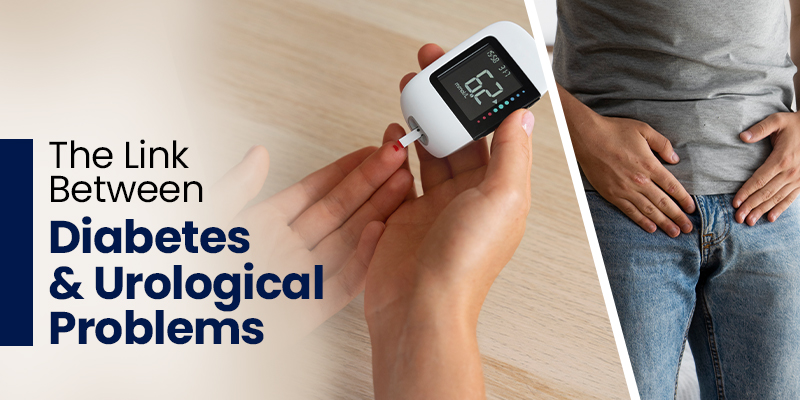- Open 24/7
- psh@paruluniversity.ac.in
- Emergency Contact - 9016668241/9016668136/18008899774

Have you ever wondered how diabetes could affect more than just blood sugar levels? While most people associate diabetes with issues like heart disease and nerve damage, it can also impact urinary health. Many people with diabetes experience problems with their bladder and kidneys, yet this link is not discussed as often as it should be.
Diabetes can damage the nerves that control the bladder, leading to issues such as frequent urination, infections, and even incontinence. It can also cause kidney problems, which, if left untreated, could lead to serious health complications. Seeking care at the best urology hospital in Gujarat and in other parts of the country can help individuals manage these issues effectively, ensuring proper diagnosis and treatment to prevent further complications. Understanding how diabetes affects urological health is essential for managing symptoms and maintaining overall well-being.
Diabetes affects the body in multiple ways, and the urinary system is no exception. The main reason behind urological problems in diabetes is nerve damage (diabetic neuropathy) and high blood sugar levels that can lead to infections.
Many people with diabetes experience urological problems at some point. Here are some of the most common issues:
People with diabetes have a higher risk of developing UTIs because of high sugar levels in urine, which create the perfect environment for bacteria to grow. Symptoms include pain or burning while urinating cloudy urine, and a frequent urge to urinate.
An overactive bladder causes a sudden and frequent urge to urinate, even if the bladder is not full. This can be due to nerve damage, making it difficult for the bladder to control urine flow.
Some people with diabetes struggle to empty their bladder completely. When urine stays in the bladder for too long, it increases the risk of infection and can stretch the bladder, weakening its function over time.
Diabetes is one of the leading causes of kidney disease. When blood sugar remains high for a long time, it damages the small blood vessels in the kidneys, affecting their ability to filter waste from the body. This can progress to kidney failure if left untreated.
If you have diabetes and experience any urinary symptoms, visiting a urologist is the best course of action. The best urology hospital in Gujarat can provide tests and treatments to manage these issues effectively.
Doctors use different tests to check for urological issues in people with diabetes:
Managing urological problems in diabetes involves treating the root cause—high blood sugar—along with specific treatments for bladder and kidney problems.
While diabetes increases the risk of urological problems, there are ways to reduce the chances of developing these issues.
High blood sugar is the main cause of nerve and kidney damage, so keeping it within the recommended range can prevent many complications. Regular monitoring and taking prescribed medications can help.
Drinking enough water flushes out bacteria from the urinary tract and prevents infections. However, balance is key, as drinking too much water before bedtime can worsen bladder problems.
Wiping properly, wearing breathable clothing, and avoiding harsh soaps can help prevent UTIs and other infections.
Holding urine for long periods can weaken the bladder muscles and increase the risk of infections. Emptying the bladder regularly helps maintain good urinary health.
Regular check-ups with a doctor can help detect any urological issues early. The best urology hospital in Gujarat offers advanced tests and treatments to ensure good urinary health.
Many people ignore urinary symptoms, thinking they are just a minor inconvenience. However, even small changes can be a sign of a bigger issue, especially for those with diabetes. It is always best to see a doctor if you experience:
Diabetes affects many parts of the body, and the urinary system is no exception. Problems like frequent urination, infections, and kidney disease are common in diabetics, but they are manageable with proper care.
The key to staying healthy is early detection. If you have diabetes and notice changes in your urinary habits, it is always best to speak to a doctor. Managing blood sugar levels, making simple lifestyle changes, and getting regular check-ups can help prevent serious complications.
By taking care of your urological health, you can improve your overall quality of life and prevent future complications. If you need expert guidance, the best urology hospital in Gujarat can provide the right care and treatment to keep your urinary system in good shape.
Written by Parul Sevashram Hospital | 20 November 2024

